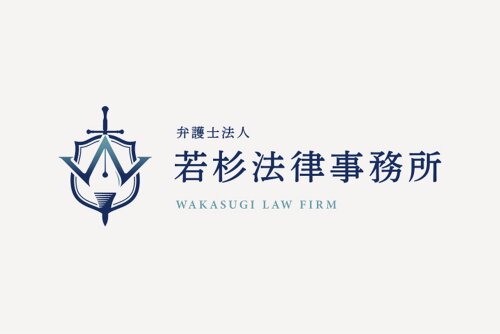Best Collaborative Law Lawyers in Fukuoka
Share your needs with us, get contacted by law firms.
Free. Takes 2 min.
Free Guide to Hiring a Family Lawyer
List of the best lawyers in Fukuoka, Japan
About Collaborative Law in Fukuoka, Japan
Collaborative Law is an alternative dispute resolution method increasingly used in Fukuoka, Japan to help parties resolve legal issues without going to court. It is most commonly applied in family law matters, such as divorce, child custody, and property division. Collaborative Law focuses on open communication, cooperation, and mutual agreement between both parties, with the guidance of specially trained lawyers. In Fukuoka, the process is gaining acceptance for its ability to promote amicable, respectful solutions that can be tailored to the particular needs of each individual or family.
Why You May Need a Lawyer
There are several situations where seeking legal help with Collaborative Law in Fukuoka can be highly beneficial. Common scenarios include:
- Divorce or separation, where spouses wish to avoid contentious court battles
- Disagreements regarding child custody or visitation rights
- Negotiating the fair division of property and assets
- Settling disputes about child support or alimony payments
- Family business restructuring after a separation
Even if both parties wish to resolve matters amicably, legal guidance is crucial in understanding rights, negotiating effectively, and drafting enforceable agreements.
Local Laws Overview
In Fukuoka and across Japan, Collaborative Law is not a separate body of law with its own statutes, but a recognized process that works within the national legal framework. Key aspects relevant to the process include:
- The Civil Code of Japan provides the legal basis for issues such as divorce, property division, and child custody
- Family Courts have jurisdiction over family law matters, but Collaborative Law aims to resolve disputes outside of court where possible
- Both parties and their legal representatives sign a participation agreement, committing to honesty, transparency, and a good faith effort to reach a settlement
- If the process fails and court litigation becomes necessary, the collaborative lawyers for each party must withdraw from the case
- Collaborative Law is supported by trained professionals, including lawyers, financial advisors, and sometimes mental health professionals, to ensure well-rounded support for both parties
Frequently Asked Questions
What is Collaborative Law and how does it work in Fukuoka?
Collaborative Law is a voluntary, out-of-court process in which parties work together with trained lawyers and possibly additional professionals to resolve their disputes cooperatively. It is especially common in family law cases.
How is Collaborative Law different from mediation?
In mediation, a neutral third party facilitates negotiation, while Collaborative Law involves each party being represented by their own specially trained lawyer who works towards a mutually agreeable solution.
Can Collaborative Law be used for business disputes or is it only for family matters?
While most common in family law, Collaborative Law principles can sometimes be adapted for other civil disputes if both parties agree to the process.
Do both parties have to agree to use Collaborative Law?
Yes, the process is entirely voluntary and relies on the commitment of both sides to resolve matters without litigation.
Are the agreements made through Collaborative Law legally binding?
Yes, once an agreement is reached, it can be submitted to the relevant Family Court to become legally binding and enforceable.
What happens if Collaborative Law fails and the dispute cannot be resolved?
If no agreement is reached, both parties must find new lawyers to handle the matter in court, as collaborative lawyers are not allowed to continue representing their clients in litigation related to the dispute.
How long does the Collaborative Law process usually take?
The timeline varies depending on the complexity of the issues and the willingness of the parties to cooperate, but it is generally faster than court proceedings.
How do I find a Collaborative Law lawyer in Fukuoka?
You can contact bar associations, legal support centers, or search for lawyers advertising Collaborative Law services in Fukuoka. Look for individuals trained specifically in Collaborative Law.
Is confidentiality maintained during Collaborative Law proceedings?
Yes, confidentiality is a key principle, and all discussions and materials are kept private and cannot be used later in court if the process fails.
What are the main benefits of using Collaborative Law instead of going to court?
The process can be less stressful, more cost-effective, faster, and allows for more creative and customized solutions while protecting relationships where possible.
Additional Resources
Here are some resources and organizations in Fukuoka and Japan that can assist those interested in Collaborative Law:
- Fukuoka Bar Association - Family Law Section
- Japan Collaborative Law Association
- Japan Federation of Bar Associations (JFBA)
- Civic Legal Support Centers (Houterasu), which provide free or low-cost legal consultations
- Local Family Court offices in Fukuoka
These organizations can assist with referrals to trained Collaborative Law professionals, as well as provide additional information and guidance on the process.
Next Steps
If you are considering Collaborative Law to resolve your legal issue in Fukuoka, Japan, start by researching local lawyers who specialize in this area. Schedule an initial consultation to discuss your situation, learn about the process, and determine if it is appropriate for your case. Ensure that both you and the other party understand and are willing to commit to the Collaborative Law process. Utilize available resources for information, and do not hesitate to ask questions before moving forward. By taking these steps, you can make informed decisions and pursue a resolution that meets your needs and protects your legal rights.
Lawzana helps you find the best lawyers and law firms in Fukuoka through a curated and pre-screened list of qualified legal professionals. Our platform offers rankings and detailed profiles of attorneys and law firms, allowing you to compare based on practice areas, including Collaborative Law, experience, and client feedback.
Each profile includes a description of the firm's areas of practice, client reviews, team members and partners, year of establishment, spoken languages, office locations, contact information, social media presence, and any published articles or resources. Most firms on our platform speak English and are experienced in both local and international legal matters.
Get a quote from top-rated law firms in Fukuoka, Japan — quickly, securely, and without unnecessary hassle.
Disclaimer:
The information provided on this page is for general informational purposes only and does not constitute legal advice. While we strive to ensure the accuracy and relevance of the content, legal information may change over time, and interpretations of the law can vary. You should always consult with a qualified legal professional for advice specific to your situation.
We disclaim all liability for actions taken or not taken based on the content of this page. If you believe any information is incorrect or outdated, please contact us, and we will review and update it where appropriate.












